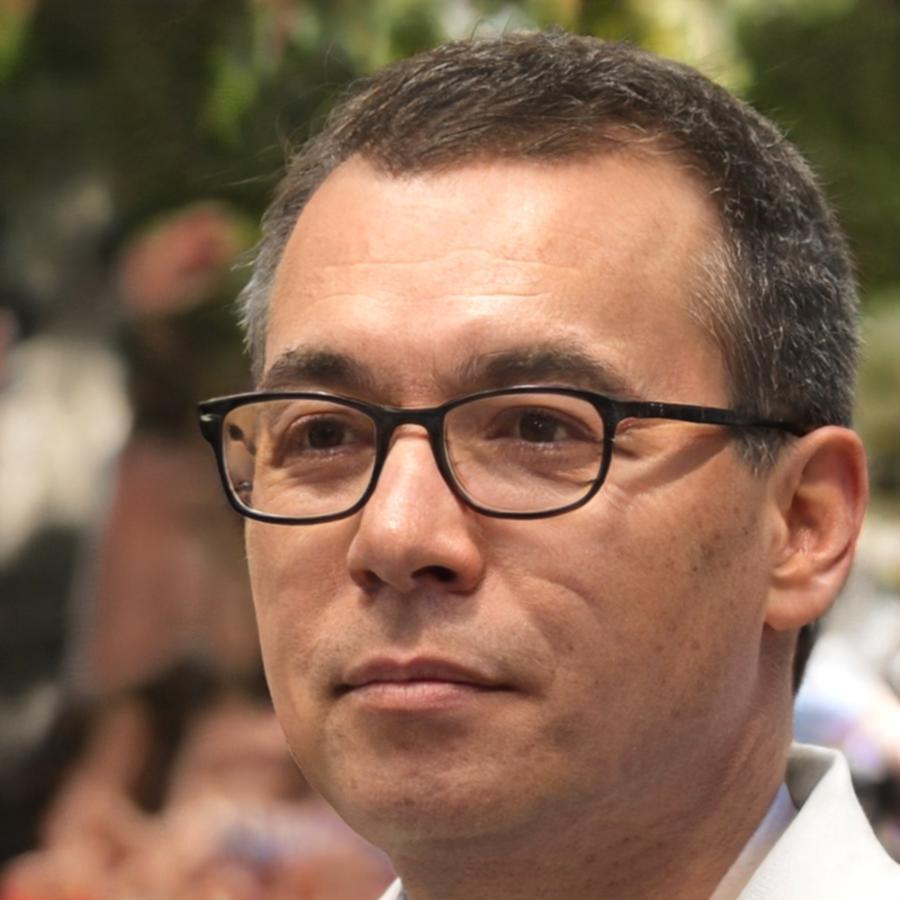Build Games That Actually Work
Most people who want to learn Unreal Engine hit the same wall. The tutorials are either too shallow or assume you already know C++. And the forums? They're full of arguments about the "right" way to do things.
Our program starts with actual game problems. Not theory. You'll spend time fixing broken code, understanding why systems fail, and building things that need to perform well. Because that's what matters when you're trying to ship something real.
Next cohort starts October 2025. We run small groups—usually 12 people max—so everyone gets feedback on their work. Applications open in July.

Ten Months of Building Stuff
The program runs from October 2025 through July 2026. You'll spend about 15 hours a week on it—some live sessions, mostly project work.
We don't follow a strict curriculum. The first month covers fundamentals everyone needs. After that, you pick a project direction and we adjust content based on what your group is actually building.
Weekly Code Reviews
You'll submit work every week. We look at it, point out issues, and explain better approaches. No sugarcoating—if something's inefficient, we'll tell you why.
Real Performance Problems
Around month four, we give you projects that perform badly on purpose. Your job is to profile them and fix the bottlenecks. This is what actual game programming looks like.
Portfolio Development
By month seven, you start building something portfolio-worthy. We help you scope it properly so you actually finish. Most students complete 2-3 solid pieces by graduation.
What You'll Actually Learn
This isn't a comprehensive list. These are the topics that come up most often when students are building their projects.
We assume you know basic programming. If you've written code in any language, you'll be fine. The first few weeks cover Unreal's specific patterns—reflection system, garbage collection, macros that look weird but matter.
You'll write a lot of gameplay code during this phase. Movement systems, combat basics, inventory management. The kind of systems every game needs in some form.
Most studios use both C++ and Blueprints. You need to know when each makes sense. We spend time on the C++/Blueprint boundary—exposing functions properly, using Blueprint interfaces, understanding when Blueprint overhead actually matters.
Some students prefer staying in C++. That's fine. But you should at least understand how designers will want to use your systems.
Networking in Unreal is its own beast. Replication, RPCs, relevancy, prediction—there's a lot. We don't cover every edge case, but you'll build a functional multiplayer prototype and debug the weird desyncs that always show up.
This section depends heavily on what your project needs. Some groups go deep on dedicated servers. Others focus on peer-to-peer gameplay. We adjust based on interest.
Your game will run slowly at some point. We teach you how to find out why. Unreal's profiling tools, CPU vs GPU bottlenecks, memory tracking, load time optimization.
This is where a lot of students have those "oh, that's why" moments. Understanding the cost of what you're doing changes how you write code.
How to package builds that don't crash. Setting up automation for cooking assets. Writing editor tools so you're not doing repetitive tasks manually. Version control strategies that don't make your teammates hate you.
Not glamorous, but these skills separate people who ship games from people who just work on them forever.
Program Options
Choose the structure that fits how you learn. All options cover the same core material and include the same project feedback.
Self-Paced Track
Work through material on your schedule. Submit projects for review. Join optional group sessions when they work for you.
- Access to all course materials
- Weekly project submission and feedback
- Private Discord channel
- Join live sessions when available
- 12-month access to updates
Cohort Track
Fixed schedule with your group. Two live sessions per week. Regular code reviews and group critique sessions.
- Everything in Self-Paced
- Two live sessions weekly (90 min each)
- Group project collaboration
- Priority feedback on submissions
- Career guidance sessions
- Alumni network access
Mentorship Track
One-on-one sessions every two weeks. Custom project direction based on your goals. Direct feedback from lead instructors.
- Everything in Cohort Track
- Bi-weekly 1-on-1 mentorship (60 min)
- Custom curriculum adjustments
- Portfolio development guidance
- Industry connection introductions
- Extended support (16 months total)

Nils Bergstrom
2024 Graduate
The performance profiling section saved me months of frustration. I was building an open-world prototype that crawled. Turned out I was spawning way too many collision checks. Once I understood the profiler, fixing it took a weekend.

Astrid Viklund
2024 Graduate
I appreciated that they didn't pretend everything would be easy. The networking module was genuinely hard. But the instructors were honest about what parts most people struggle with, which somehow made it less stressful.

Siobhan Rafferty
January 2025 Graduate
The weekly feedback was blunt but useful. They'd point out when my code was overly complicated or when I was optimizing things that didn't matter yet. Saved me from a lot of bad habits I was developing.

Branwen Vaughan
December 2024 Graduate
Best part was learning alongside other students at my level. We'd share solutions to problems and figure out why different approaches worked. That peer learning was honestly as valuable as the formal instruction.